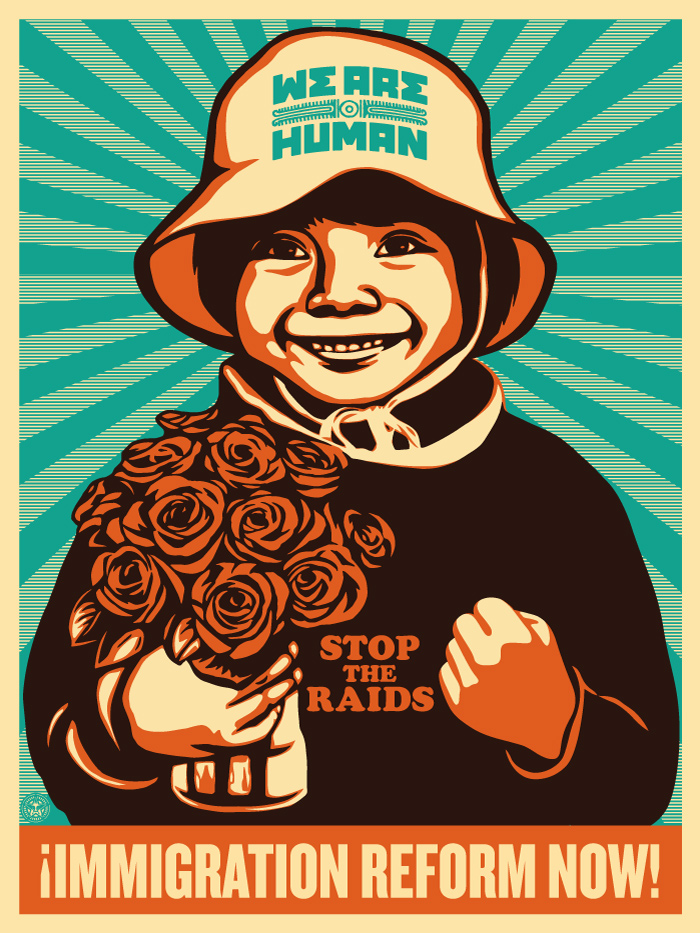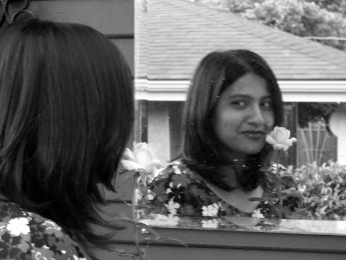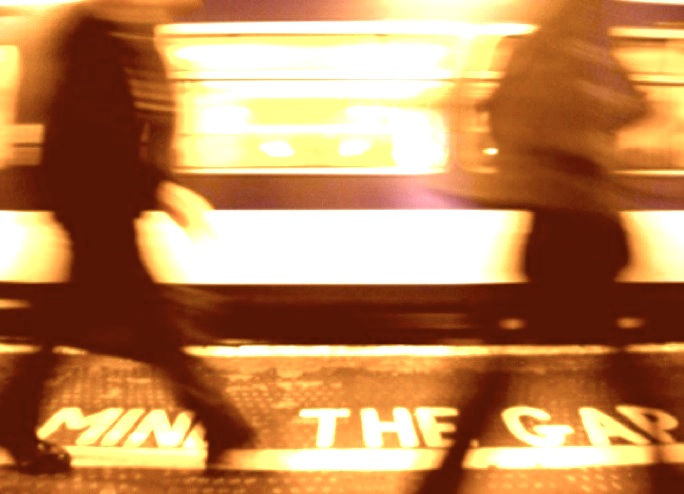KPFK operates from a distinguished-looking red brick building in North Hollywood that seems to slouch slightly amidst its bustling surroundings. With a Panda Express across the street and an Indian restaurant called the “Bollywood Two” next door, along with cute local places like

(a slightly-seedy jazz club that serves all manner of interesting starchy-Solanaceae concotions including a Maple Ham, Corn, and Pineapple Potato; a Hot Dog and Sauerkraut Potato, a Marinated Steak Potato…the list of oddities goes on), and Universal Studios just a short tram ride away, the radio station seems a bit out of place at first. But its eclectic, electric spirit is represented in its diverse surroundings.
The radio archive at KPFK is the nation’s oldest, and the archives room has a great atmosphere. It’s dimly lit—the ceiling lamps have colored-cloth lanterns hanging over them, casting the entire room in an eerie, softly tinted light, and the rows of cases cradling books and CDs are perfect for crawling between for a post-lunch nap (no, silly, I haven't taken one). The walls are painted a pollen-like orange, with red, white, and yellow stripes running like equators across their bellies. The latitudinal lines are broken by towering chests of drawers filled with old chunks of history—50 years of grassroots political, cultural and performing arts history. There are recordings and interviews with greats like John Coltraine and John Cage, Langston Hughes, James Baldwin, Allen Ginsberg and Lawrence Ferlinghetti, and even Ernesto “Che” Guevara. I worked in the archives my first day at KPFK, and enjoyed organizing recordings while chatting with other volunteers (like Sylvia, an old woman at whom I nervously had to shout because she was "going deaf, dear"), archivists (like Edgar, who literally had a feather in his cap, well, fedora really), and producers.
I can’t really explain the first few days working on a show. I walked into the office and stood staring at all the posters for a while—Immigration Reform Now! Iraqi Workers Unite! Bush—the Only Dope Worth Shooting.
Researching was easy and enjoyable—preparing talking points was difficult. When writing segment introductions, I was suddenly struck by my power. A strategically placed qualifier, an extra sentence (or a sentence less), a few choice words, the emphasis placed on a fact, all led to radically different slants on the same facts. And the idea of framing a deeply complex issue in only 15 minutes was staggering.
The first segment I had to work on was the most daunting. It was about toxic chemicals used as flame retardants. These chemicals coat objects from pillows and pajamas to television sets and car seats. I read a lot about the issue, the history of legislation surrounding it, the chemical reasons it was bad, the medical problems it caused. But I still didn’t know what the public needed to be informed about. Did they need to know about the chemicals that had been recently banned? The effects of the chemicals? The science behind their toxicity? The corporate lobbyists that prevented them from being taken off the market? The civil rights debates surrounding the issue? The fact that I was in a position to decide what millions of people needed to know was difficult to wrap my head around, and everything seemed important. Sometimes curiosity is unrewarding. I eventually got the talking points in order, but they were too unspecific in some cases and too general in others. But I comforted myself—I’d get it eventually, and I have become better (but not perfect yet, oh no). Every story I research and help write astounds me. My parents are probably getting tired of me talking nonstop about French burka bans and torture in Afghan detainment camps and Scott Brown’s stupidity, but I can’t help it. Everything is too wonderful a prospect, everything seems so important.
Perhaps the biggest lesson I’ve been learning from Pacifica radio is the one that should be the most obvious—that journalism has a profound affect on the way that people act and think. That journalism is what brings people to the front lines. For someone like me, who has always believed she should (and would) become the driving force in every story—who wants to be each hero, the larger-than-life every(wo)man—this is a big realization. I’m learning that telling the stories is just as important, and I’m learning that my old views—my scorning the catalyst in favor of the protagonist—were naïve and, frankly, egotistic. How many people know of Edward R. Murrow and how many people know of Gandhi? It must have been some sort of complex, a
 wanting to be great, to be known the world over. I don’t think I’ve quite gotten over it (who ever does?), but, as corny as this sounds (and I know it will sound corny), if it ultimately makes the world a better place, I don’t mind a bit of that yearning on my part or anyone else’s. But Sonali Kolhatkkar, the amazing broadcaster and journalist with whom I’m working (or, to be more correct, for whom I’m working), balances these roles of catalyst and proactive actor very nicely, working on her show, Uprising, and working as an activist in an Afghan woman’s collective. I can only hope that I’ll be able to find such an admirable balance later in life.
wanting to be great, to be known the world over. I don’t think I’ve quite gotten over it (who ever does?), but, as corny as this sounds (and I know it will sound corny), if it ultimately makes the world a better place, I don’t mind a bit of that yearning on my part or anyone else’s. But Sonali Kolhatkkar, the amazing broadcaster and journalist with whom I’m working (or, to be more correct, for whom I’m working), balances these roles of catalyst and proactive actor very nicely, working on her show, Uprising, and working as an activist in an Afghan woman’s collective. I can only hope that I’ll be able to find such an admirable balance later in life.






